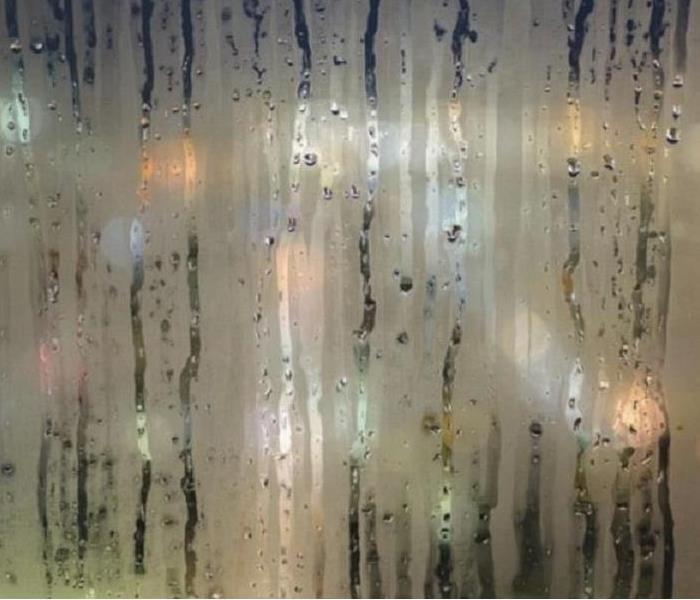Humidity Causes Water Damage in Trailers
10/26/2018 (Permalink)
 Condensation buildups in trailers may cause serious water damage, if not addressed at an early stage.
Condensation buildups in trailers may cause serious water damage, if not addressed at an early stage.
If things are getting steamy in your RV, you would be wise to find a solution, sooner than later.
Whether you’re camping out in the summer or winter, travelling, or if you live in your trailer year round, humidity inside your trailer can cause serious problems that lead to structural damage and health issues.
Humidity rises when the temperature changes and when you’re cooking, showering, or washing. Even your breathing at night can raise humidity levels in small enclosed spaces. In each of these cases, water vapor is released into the air. When vapor cools, condensation forms. The condensation clings to windows, settles on walls, and may even seep between joints.
If you don’t have a way to reduce the humidity; mold and mildew will form and metal structures can corrode — posing serious health risks for you and your family and reducing the life of your vehicle. Mold and mildew create a nasty smell and ruin upholstery. If the issue continues, you could end up with a termite infestation or other pests.
As an RV owner, it’s essential that you stay on top of the moisture issue.
How to Control RV Humidity Problems
In the summer, you can easily control moisture in your motor home by using an air conditioner or by increasing ventilation from opening windows. But in cooler months that’s usually not the best solution for staying warm and comfortable.
For most recreational vehicles, the best solution is a dehumidifier. Dehumidifiers circulate air and pull out water, without changing the air temperature. Water is extracted and collected, and dry air is returned. Dehumidifiers work quickly, too — you’ll notice a difference in humidity within a few minutes.
What’s the Best Dehumidifier for an RV?
Don’t use the same dehumidifier for your trailer as you would for your house. The best dehumidifiers for recreational vehicles are small enough for your limited space and won’t be so noisy that you can’t sleep at night.
You have several types of dehumidifiers to choose for your motor home:
- Non-electric — silent operation, lower capacity for pulling moisture
- Electric with compressor — high capacity, some noise
- Electric with Peltier thermal technology — high capacity, lower power consumption, quieter than compressors
Be sure to do your research and read reviews to determine what option will fit your needs best.
Beating Humidity in Storage
Mold and mildew can also grow in your recreational vehicle while it’s in storage. Covering your RV in tarps and plastic is a good preventive measure, but it also traps moisture inside. Over the course of the winter, water vapor buildup can cause mold, and you’ll have a nasty surprise waiting for you come spring.
Ventilation is the best way to prevent moisture problems when your RV is in storage. Air vent covers allow you to keep the vents open on your motor home while protecting it from foul weather. Water vapor can escape and your RV’s interior stays dry.
You should also consider using an RV cover that is specifically made for trailers. The fabric of an RV cover is waterproof and breathable to ensure water vapor doesn’t build up.
Whether you’re camping, storing your recreational vehicle, or living in it year round, protecting it against excessive humidity will help guarantee many years of worry-free adventure and memories you’ll treasure for a lifetime.
And if you do require help in remediating water or storm damage, mold or pest infestations, call SERVPRO of The East End at 631-653-9595 to mitigate the problem and make it ‘Like it never even happened.’






 24/7 Emergency Service
24/7 Emergency Service